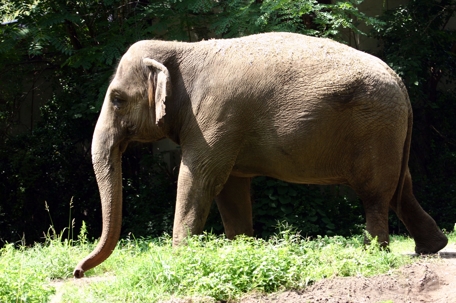The law has not always been on the side of justice or what is moral and just. And celebrated legal decisions do not always materialize out of thin air. Often times they are the culmination of fervent, sustained advocacy along with relentless campaigning and protest. We've witnessed this dynamic unfold in the past. The historic case of Brown v. Board of Education serves as a reminder that the law can be slow to evolve but it can also be nudged toward justice. For a long time, the legal framework, reflecting societal biases, did not grant basic rights like habeas corpus to women and minorities. This transformative civil rights case aimed at challenging the entrenched "separate but equal" policy that sanctioned state-endorsed segregation was the result of some groundwork. In 1940, with the intent of utilizing litigation to advance civil rights, the NAACP Legal Defense and Education Fund was founded.
The visionaries of the civil rights era recognized the shortcomings of government branches that were directly accountable to the people. This was starkly evident in a time when African Americans were systematically denied their right to vote. To circumvent this political hurdle, they turned their eyes to the federal courts, wherein judges were less susceptible to pressures that might sustain segregation. Legal stalwarts from the NAACP LDF, including Thurgood Marshall, meticulously crafted a strategy to contest and gradually dismantle the legal doctrine that had legitimized segregation for decades.
While the fight for human rights provides a compelling narrative, there's another unfolding story: the rights of cognitively complex sentient non-human animals, like the elephant. Elephants are unique in that are renowned for having intricate social structures, the ability to grieve, they mourn for and bury their dead- they also have an understanding of their past, along with other complex cognitive abilities.
This law firm was proud to write the amicus brief of three Buddhist scholars in the case of Happy the elephant, during the Nonhuman Rights Projects fight for a writ of habeas corpus in New York's highest court. That case has been called the most significant animal rights case of the century. And though Happy remains in the cruel captivity of the Bronx Zoo, that case led to two powerful dissenting opinions and allowed the testimony of the worlds foremost experts on elephant behavior and cognition. Not one elephant expert could be found to provide support for keeping Happy in captivity-other those groups who had a direct economic interest in the matter. By contrast, on Happy's side, there were numerous amicus briefs including by; 6 lawyers whose practices made them experts on habeas corpus (4 having defended the Central Park Joggers), Jewish Scholars, Eastern Theologians, Catholic scholars, dozens and dozens of law professors, world renowned academics, et al
The fight continues. Today, the DeSilva Law Offices filed an amicus letter on behalf of three Buddhist scholars in California's Supreme Court in support of the Nonhuman Rights Project's petition for a writ of habeas corpus and issuance of an order to show cause for three elephants held at the Fresno Zoo. The Fresno Zoo, incidentally, has been called one of the worst Zoos for elephants in the world.
Our amicus letter joins that of substantial amount of experts, judges, lawyers, academics and scientists from around the world who demand that elephants not be considered as merely "things". Elephants are not merely "things."
Studies done over the last 6 decades have given us a deeper view into their profound emotional lives and their indispensable role as keystone species. This knowledge and principles of justice and morality highlight the need for a shift in perspective. Just as morality and ethics reshaped societal and legal views on human rights, it's imperative that our expanding evidence based knowledge of elephants, redefine how we perceive and treat these cognitively complex sentient beings. As an instrument of justice and equity, the law must evolve, championing the inherent value and rights of such extraordinary creatures. It is long past time that elephants not be kept in zoos and that the common law recognize that they are not merely things-that they have some rights. This firm firmly stands behind this fight.
Please read more about the Nonhuman Rights Project here, and the case of the three Fresno elephants here.
The amicus letter can be read here.
Please join me in helping this important cause. Please sign their petition and if at all possible consider donating to the Nonhuman Rights Project in their groundbreaking and vital work.
R Tamara de Silva

